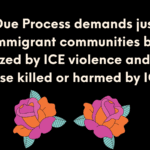On December 12, the Center for Reproductive Rights announced a federal lawsuit against a new Department of State Health Services rule set to go into effect on December 19. The rule that would require the clinics and hospitals to bury or cremate embryonic and fetal remains from miscarriages and abortions. The filing reads, “Like HB 2, the Regulation burdens women seeking pregnancy-related medical care. It imposes a funeral ritual on women who have a miscarriage management procedure, ectopic pregnancy surgery, or an abortion. Further, it threatens women’s health and safety by providing no safe harbor for sending tissue to pathology or crime labs. It also forces healthcare providers to work with an extremely limited number of third-party vendors for burial or scattering ashes, threatening abortion clinics’ provision of care and their long-term ability to remain open, as well as cost increases for women seeking pregnancy-related medical care.”
At the second public hearing about the rule on November 9, our Executive Director and Board President shared testimony against the rule. We published our board president’s testimony last month, and today, in solidarity with the filing, we are sharing our Executive Director’s personal testimony.
“November 9, 2016
Dear Commissioners:
My name is Tina Hester and I am from Austin, Texas. I am wearing two hats today. First, I’m the executive director of Jane’s Due Process, a nonprofit that ensures legal representation for pregnant minors in Texas. Second, I’m here to testify as a woman who has experienced the full gamut of pregnancy outcomes — abortion, live birth, and three miscarriages.
This is a cruel, unnecessary proposal designed to shame women and increase the costs of medical procedures.
A vignette about one of my miscarriages. The physician asked me to bring a sample tissue for genetic testing. I remember combing my hands through the bloody discharge in the toilet for a long time, trying to find something to take to the doctor. After much blood loss, my husband drove me to the hospital, where I passed out in the ER. As they rushed me into an operating room, the nurses kept saying, “Stay with us.”
After that very upsetting experience, I would have found it extremely cruel to have to bury whatever fetal remains, if any, existed. Instead, if my doctor suggested it, I would have much preferred to send tissue samples for pathological examination and testing.
Another much-wanted pregnancy ended with a D&C. There was no fetal heartbeat at one of my check-ups. I did not want to believe that this could be true and asked an OB/GYN I knew at church to perform a second ultrasound. She quietly told me that indeed the fetus had died in utero. We scheduled a D&C for the day after Christmas. I cried through most of the holiday and had little joy spending time with my toddler, for I was an emotional wreck. My mother then persuaded me to quit trying to have another baby because I needed to be there for the child I had.
In these circumstances, for the state to require a burial or cremation is beyond comprehension.
It also makes no sense to add additional costs to patients. Many of the young women who call our 24/7 legal hotline struggle to pay for the abortion. If clinics are forced to pass along the costs of this unnecessary regulation, at least some of these teens who prefer to have an abortion will continue unwanted pregnancies.
Women who want to have a burial or cremation after a miscarriage or stillbirth can do so. Women who don’t want that additional trauma – and I’d be among them – shouldn’t have to. Please refrain from the temptation to intrude into our personal lives.
Tina Hester”



